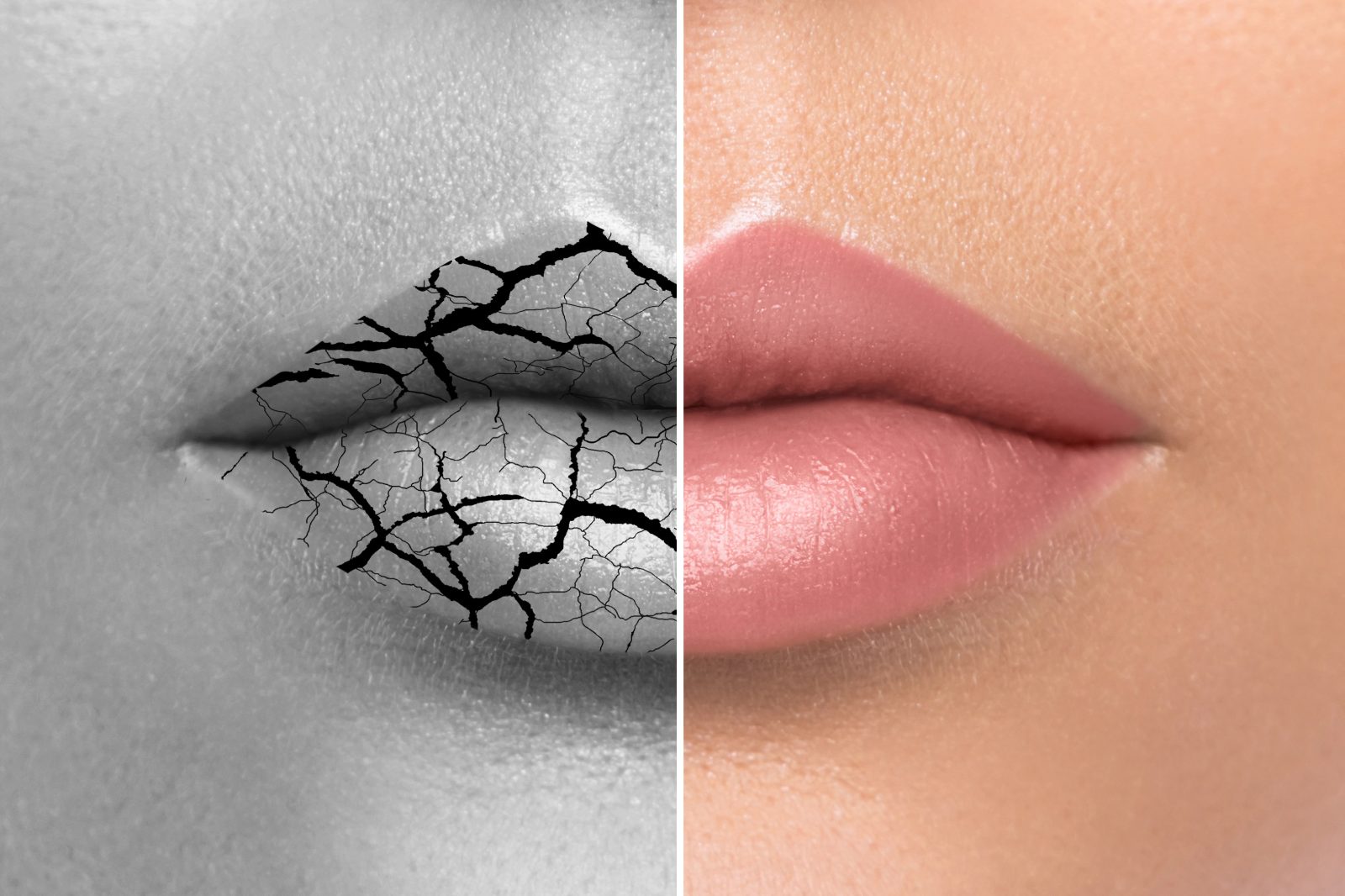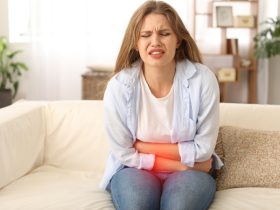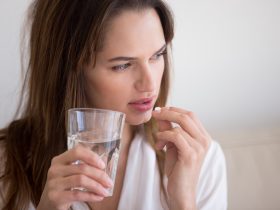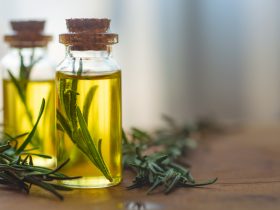The sensation of dryness and cracks in your lip skin characterizes chapped lips. When your lips exhibit burning, stinging, or discomfort symptoms, it likely indicates chapped lips.
You might associate chapped lips primarily with winter, yet without proper attention; your lips can become dry, painful, and scaly throughout the year. This scenario is particularly relevant if you use lip-licking, lip skin peeling, biting habits, or employ products that lead to lip irritation and dryness.
Recognizing Symptoms
Symptoms of Chapped Lips are the following:
- Dryness
- Formation of cracks, resulting in peeling or flaking
- Occasional bleeding
- Presence of redness
- Sensations of burning, stinging, or tingling
- Causes and Risk Factors
Multiple factors can contribute to or heighten the likelihood of chapped lips, including:
- Dry weather conditions
- Low humidity indoors
- Absence of oil glands in the lip area
- Neglecting proper lip moisturization
- Application of bothersome lipsticks or balms
- Utilization of harsh or drying elements like menthol, camphor, or salicylic acid
- Excessive sun exposure
- Frequent lip licking, touching, or picking
- Inadequate hydration
- Contact with metallic surfaces
When it comes to dry lips solution, a lip treatment is available to alleviate discomfort and restore lip health. From moisturizing to avoiding lip-irritating products, finding the right approach for your specific condition is essential.
Managing and Treating Chapped Lips with Effective Remedies
When dealing with the discomfort of severely chapped lips, it’s crucial to implement proper chapped lips treatment. Since your lips lack oil glands and are consistently exposed to external elements, neglecting their care can have undesirable consequences.
To ensure your lips remain healthy and comfortable, consider the best treatment for dry lips:
- Utilize Lip Balm: Opt for a high-quality lip balm enriched with emollients, such as petrolatum, known for its moisture-retaining properties, and dimethicone, which effectively seals cracks in drying lips. Lip ointments, aside from balms, are also an excellent choice.
- Frequent Application: Irrespective of your chosen product, apply it before using lipstick or lip gloss, and reapply frequently throughout the day. Aiming for six to eight applications during the day is recommended.
- Outdoor Protection: Shield your lips from the elements when outside by wearing a scarf or ski mask that covers your mouth. Furthermore, select a lip balm offering broad-spectrum UV protection to safeguard against sun damage.
- Hydration Matters: Staying hydrated is crucial for preventing chapped lips, as dehydration can contribute to this condition.
- Indoor Humidification: Combat dry indoor environments by utilizing a humidifier. This additional moisture benefits your lips and skin, particularly during colder months.
- Avoid Lip Licking: Refrain from licking your lips, as the drying effect of saliva can exacerbate the issue. Opt for lip balm to provide the necessary moisture instead.
- Resist Peeling or Biting: Peeling or biting can harm Delicate lip skin. Such actions can lead to bleeding, hinder healing, and intensify irritation.
- Skip Exfoliation: Exfoliating chapped lips can worsen the condition. Instead, prioritize applying ample balm or ointment and incorporating a humidifier into your environment.
- Appropriate Ingredients: Be cautious about the ingredients in your lip care products. For example, Eucalyptus, menthol, and camphor can potentially dry or irritate your lips. Avoid these, especially if you have dry skin.
- Consult a Dermatologist: Persistent chapping, even with regular use of lip balm, could indicate an underlying problem. If your condition does not improve, consult a dermatologist. Addressing issues that don’t heal is important, as they could signify infection, cancer, or conditions like actinic cheilitis.
Implementing these chapped lips treatment practices will aid you in managing dry, chapped lips effectively and finding the best dry lips solution for your specific needs.
















Find Us on Socials